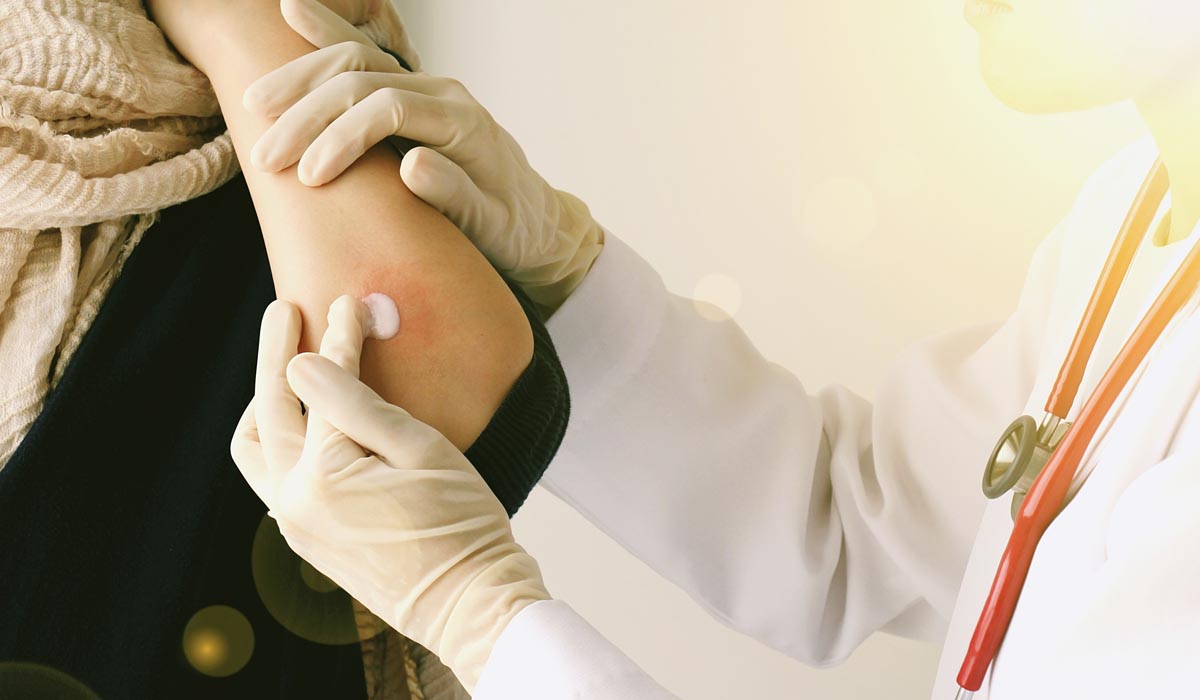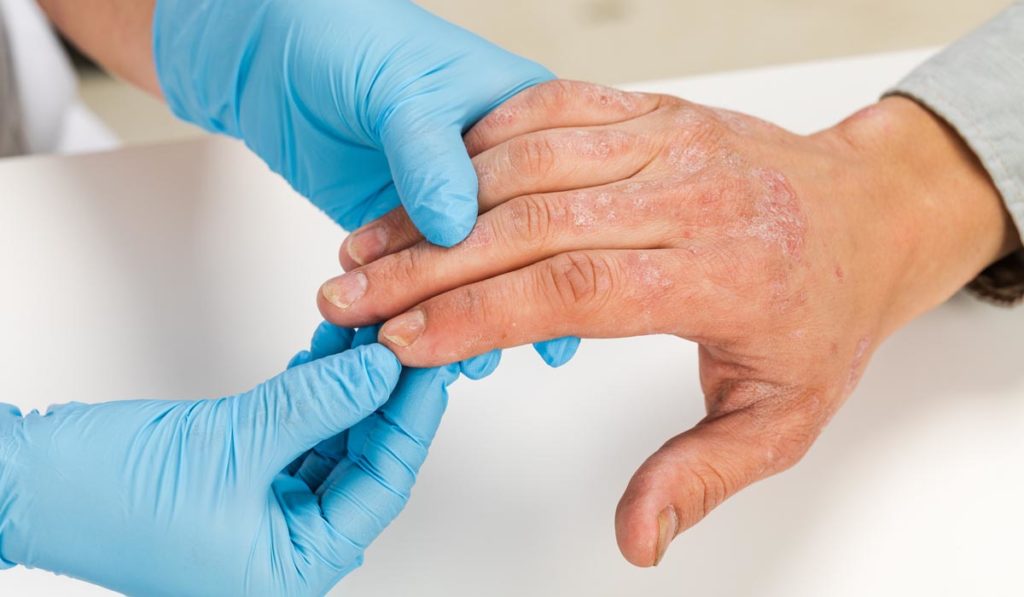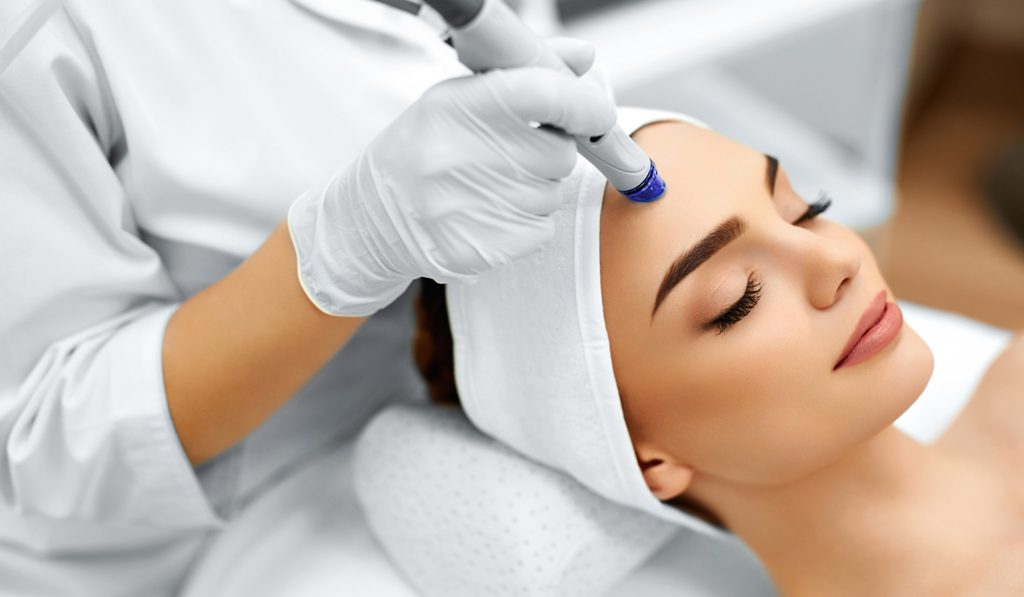Eczema: Types, Symptoms, Causes, Diagnosis, and Treatment
Eczema is a persistent skin disorder that causes areas of the skin to become inflamed and irritated. It is estimated that around 10-20% of children and 1-3% of adults worldwide suffer from this condition. Eczema’s exact cause is unknown, but it is thought to be caused by a mix of factors, including genetics, climate, the body’s immune dysfunction, and an overreaction to certain irritants.
Common symptoms of eczema include dry, scaly patches on the skin, itchiness, redness, swelling, blistering or crusting, and oozing or bleeding. The severity of these symptoms can vary significantly from person to person. Additionally, the condition can worsen by environmental factors such as heat, cold, dry air, or allergens.
Treatment of eczema typically involves a combination of topical treatments and lifestyle changes. Topical treatments may include moisturizers to reduce dryness, anti-itch medications to relieve itching, and corticosteroids to reduce inflammation. Other therapies include:
- Phototherapy (light therapy).
- Immunomodulators (drugs that affect the immune system).
- Biologics (drugs that target specific parts of the immune system).
In addition, patients should also focus on managing their stress levels and avoiding potential triggers for their condition.
Types of Eczema
Atopic Dermatitis: This type of eczema, also known as atopic eczema, most frequently affects newborns and young children. The severity of the symptoms can vary from mild to severe, and they typically worsen when particular irritants are applied to the skin. This type of eczema is linked to allergies and asthma, so avoiding allergens may help reduce symptoms.
Contact Dermatitis: When the skin is in contact with an allergen or irritant, contact dermatitis develops. Cosmetics, scents, soaps, detergents, jewels, and fabrics are just a few examples of the items that can cause it. Redness, itchiness, and a burning sensation in the area where the allergen came into contact are symptoms.
Seborrheic Dermatitis: This type of eczema is often seen in adults, particularly those with oily skin or scalp. It frequently results in dry, scaly patches on the face, scalp, and other parts of the body where there are numerous oil glands. Stress, exhaustion, chilly weather, and excessive sweating can all aggravate seborrheic dermatitis.
Dyshidrotic Eczema: Also known as pompholyx, dyshidrotic eczema causes small blisters on the hands and feet. These blisters may itch or burn and can become very painful if they burst. Common triggers include metal jewelry, detergents, and soaps.
Regardless of the type of eczema, it is essential to seek medical advice if you or your child experience any of the symptoms mentioned above. Most people can manage their condition and lead a healthy life with proper treatment and lifestyle modifications.
Causes
Although the precise cause of eczema is uncertain, many other variables are thought to be responsible. These include genetics, environment, immune system dysfunction, and an overreaction to certain irritants.
Genetics: People who have family members with eczema are more likely to suffer from the condition themselves. Scientists believe that a particular gene may make people more prone to developing eczema and other skin conditions.
Environment: Environmental factors can worsen eczema, such as dry air, humidity levels, temperature changes, dust mites, pet dander, and certain fabrics. Stress and sweat can also trigger symptoms in some people with eczema.
Immune System Dysfunction: People with eczema often have an overactive immune system, which causes their bodies to produce more antibodies than average. These different antibodies cause the skin to become inflamed and itchy.
Irritants: Certain substances such as soaps, detergents, perfumes, and metals can trigger eczema flare-ups in some people. Moreover, some people may experience more severe symptoms when exposed to certain foods or pollen.
There are techniques to control it and lessen its symptoms. Most people can effectively control their eczema and lead a healthy life with appropriate treatment and lifestyle changes.

Symptoms
The symptoms of eczema vary from person to person, but the most common symptom is itchy skin. Other symptoms may include:
- Dry, scaly skin
- Redness or inflammation
- Blisters that ooze fluid when they burst
- Thickened or leathery patches of skin
- Darker skin color in areas affected by eczema
- Intense itching (especially at night)
Diagnosis
A doctor will typically conduct an exam and review the patient’s medical history to diagnose eczema. They may also take samples from the affected area to rule out other conditions. Additional tests such as skin patch tests, blood tests, and biopsies may be ordered.
Eczema treatment aims to reduce itching and inflammation, prevent infection, restore the skin’s barrier function, and improve quality of life. Treatment typically includes over-the-counter or prescription topical medications such as corticosteroids, moisturizers, antibiotics, or antihistamines. Certain lifestyle changes, such as avoiding triggers and taking cool baths with mild soap or colloidal oatmeal baths, can help reduce symptoms. In some cases, additional treatments such as phototherapy or immunosuppressive therapy may be necessary.
Treatment
Topical medications such as corticosteroids or calcineurin inhibitors can reduce inflammation and itching, while moisturizers help to restore the skin’s barrier function. Additionally, avoiding triggers such as certain fabrics or irritants like soaps and detergents is vital for managing symptoms. Other treatments may be necessary, such as phototherapy, immunosuppressive therapy, or oral medication.
It is critical to avoid rubbing the affected region because doing so can spread infection. Lastly, it is essential to see a doctor regularly for follow-up visits to address any changes in symptoms promptly.
Why Choose 7DMC?
At 7DMC, we provide comprehensive treatment for eczema. Our experienced team of doctors and skin care specialists offers personalized treatments tailored to each patient’s needs. We strive to create a comfortable, compassionate environment where our patients can feel safe and secure.
Our dermatology clinic offers the latest treatments in eczema care, including topical medications, phototherapy, immunosuppressive therapy, and oral medication when necessary. We also offer lifestyle advice such as trigger avoidance and keeping the affected area clean to reduce symptoms further.
Living with eczema can be difficult and uncomfortable, and we are here to help you manage your condition effectively.
Conclusion
Eczema is a long-lasting skin disorder that can lead to itching, swelling, and other unpleasant symptoms. Most people can effectively control their eczema and lead a healthy life with good medical care and lifestyle adjustments. If you have eczema, contact us immediately to learn more about our treatments.
References:
webmd.com/skin-problems-and-treatments/eczema/atopic-dermatitis-eczema
nationaleczema.org/eczema/treatment
- CATEGORIES : Dermatology





